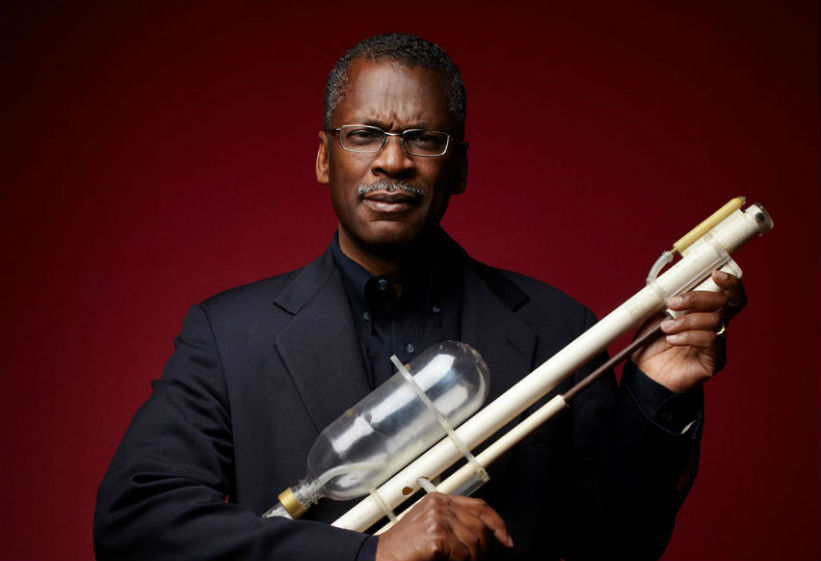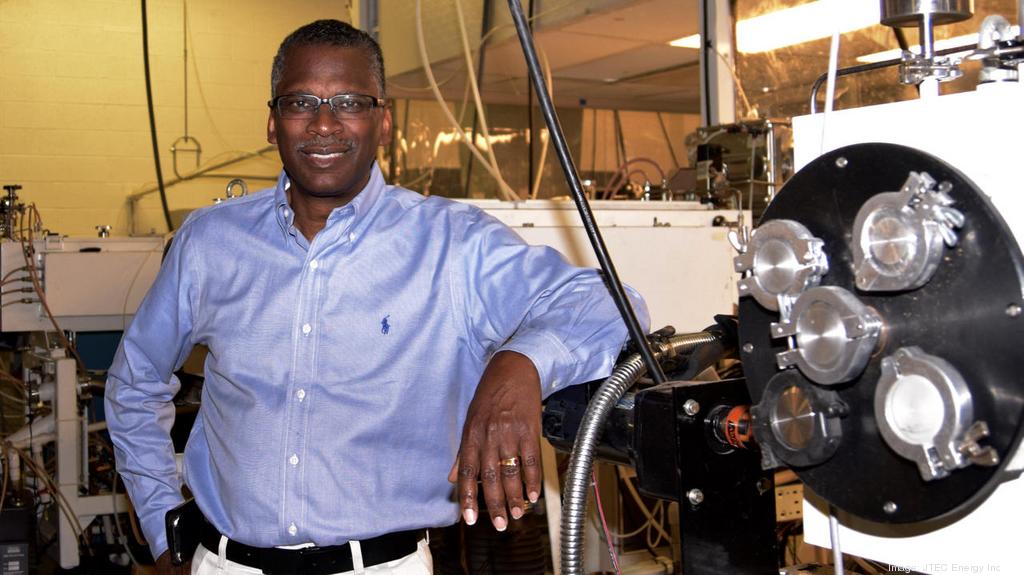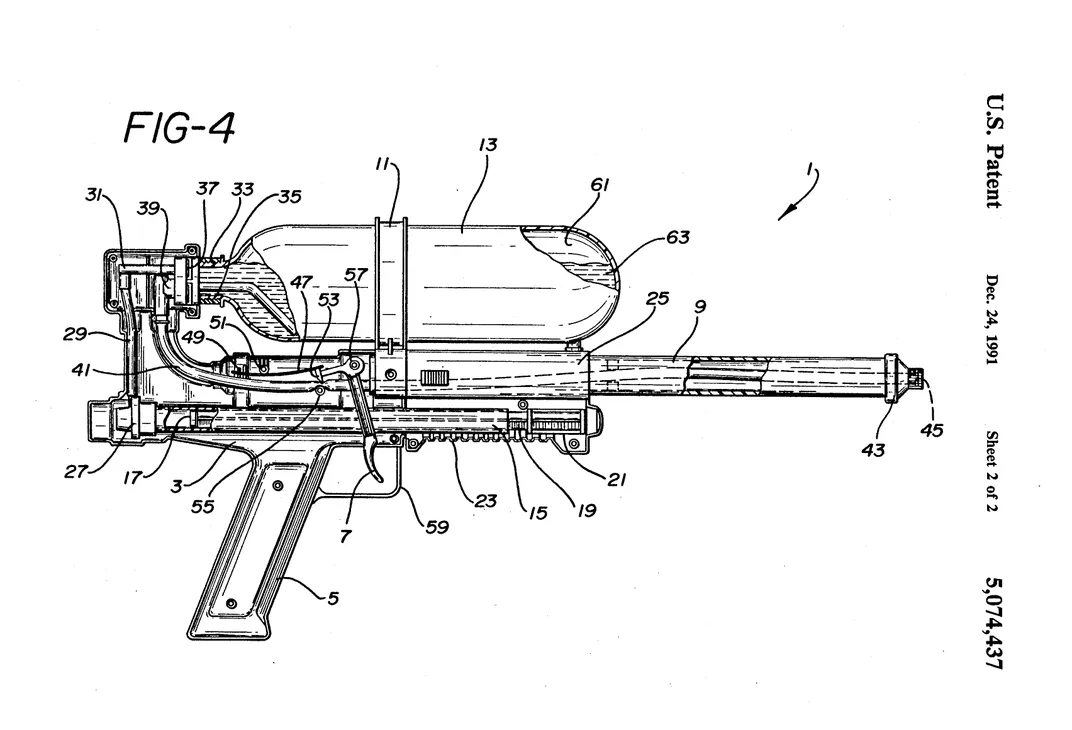I don't know about you, but I grew up on toys like the Super Soaker and the Nerf gun. Spraying my younger siblings with as much water as I could during the summer or blasting my friends with Nerf darts are some of my core memories from childhood. Until recently, however, I had never considered where these inventive toys came from or who had the genius to design them.
Well, as it turns out, that man is Lonnie Johnson. He is most famous for inventing the aforementioned Super Soaker and Nerf guns; however, his life and creative process are much deeper than just making toys.
Lonnie was born in Mobile, Alabama, in 1949. His father was a handyman, and Lonnie grew up wanting to be an inventor. He looked up to the famous Black scientist George Washington Carver as inspiration since growing up in the still-segregated South had a major impact on his schooling and career aspirations. In fact, when Lonnie represented his high school in the 1968 Alabama state science fair, he was the only Black participant. Nonetheless, he proved himself a trailblazer and won first prize for a robot powered by compressed air.
Despite the inherent hurdles Lonnie had to overcome to enter the scientific community, he persevered and eventually joined the Air Force. Soon, he became an established scientist by getting a job at NASA in 1979.
After returning to the Air Force in 1982, Lonnie began to experiment with a prototype heat pump that used water instead of Freon, a toxic element commonly used at the time. Lenny tested the prototype in his bathtub and was surprised to see that his invention squirted a large blast of water! Here's where Lonnie's creativity shined. When it comes to Lonnie's creativity, it falls in what researchers have termed the "pro-C' category. In other words, might not have had a permanent societal impact like Albert Einstein's theory of relativity (which would be "Big C"), but it was way bigger than your average creativity, which is present in everyday activities like cooking ("little c").
The reason I classify Lonnie's next move after his prototype test as pro-C creativity is that it is a result of his divergent thinking. Divergent thinkers tend to be able to come up with many different ways of looking at a particular object or field of study, as opposed to convergent thinkers who hone in on only a few possibilities. Most people, even most scientists, would have probably just thought that Lonnie's invention worked after testing it, and they could move on to finishing the design. But Lonnie decided, of all things, that his heat pump might function better as a toy instead. Fast forward ten years to 1992, and Lonnie had not only patented the Super Soaker but sold it to the Larami Corporation (now part of Hasbro). In 1991, sales for the Super Soaker reached an incredible $200 million, and summer in America has never been the same since.
There's a famous divergent thinking test that creativity researchers came up with where they ask participants to name as many uses for a brick as they can. I have no doubt that Lonnie could probably come up with a ridiculous number of answers.
So there you have it: Lonnie Johnson, a pro-C thinker most people haven't heard of, is responsible for plenty of childhood enjoyment through his inventions. I also have to mention again that he found all of his success despite the racial barriers he faced during the 50s and 60s; it makes him even more impressive. I admit I haven't used a Super Soaker in a while, but the next time I see one, I'll think of Lonnie.
Sources:
https://www.biography.com/inventors/lonnie-g-johnson
https://www.uspto.gov/sites/default/files/johnson-lead.jpg
https://www.mountsinai.org/health-library/poison/refrigerant-poisoning#:~:text=How%20well%20a%20person%20does,brain%20damage%20and%20sudden%20death.
https://cdn.vox-cdn.com/thumbor/Z-I17eoopBWUZU5pjov1fm952dc=/0x0:2685x1790/1400x788/filters:focal(1343x895:1344x896)/cdn.vox-cdn.com/uploads/chorus_asset/file/19731317/NERF_Super_Soaker_XP100___Lifestyle.jpg
kaufman&beghetto_2009.pdf [LUC access only]
https://th-thumbnailer.cdn-si-edu.com/jx7593wJ1hP_aUUvMkInc6WbX0I=/fit-in/1072x0/https://tf-cmsv2-smithsonianmag-media.s3.amazonaws.com/filer/61/85/618557a9-d197-4ede-902e-c4e298b5b35d/us5074437-2.jpg
https://media.bizj.us/view/img/11908607/lonniejohnsonlab*1024xx1280-719-0-104.jpg

/cdn.vox-cdn.com/uploads/chorus_asset/file/19731317/NERF_Super_Soaker_XP100___Lifestyle.jpg)


There have been many a nerf gun fight in my childhood and I never thought about who was behind them. You can tell Lonnie Johnson was more than just creative from a young age, fighting to be the only African American participant in the state fair. I would have never guessed the guy behind nerf guns would have worked at NASA. He was really able to shift the problem as his initial solution of compressed air was not an obvious success. His creativity really shows in his ability to take his findings and transfer its use to things like nerf guns and super soakers.
ReplyDeleteOh I remember learning about him a while ago! I love your analysis of his work and the connections you drew to our examples from class. I do think he is a very good example of a pro-C creative, and his inventions have of course been wildly influential despite the lack of recognition. I love learning about the paths taken to create inventions that are now commonplace, and this was a fascinating read!
ReplyDeleteIt's amazing to learn about his perseverance and resilience in overcoming the racial barriers he faced during his career, and how his divergent thinking led to the development of these toys. Lonnie's story is a testament to the power of creativity and innovation, and it's great to see his contributions recognized. I think it's especially ironic how his work with toxic chemicals revolutionized harmless fun for children for decades. Really cool post!
ReplyDeleteI grew up using Nerf guns and Super Soakers and never really thought about who was behind inventing them or their inspiration. It is super interesting that the Super Soaker was invented "accidentally" and that the initial use was industrial. It is super impressive how Johnson saw a completely different use for his invention!
ReplyDelete